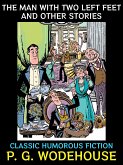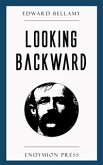American author and socialist, most famous for his utopian novel, Looking Backward, set in the year 2000.
According to Erich Fromm, Bellamy's novel Looking Backward is "one of the most remarkable books ever published in America." It was the third largest bestseller of its time, after Uncle Tom's Cabin and Ben-Hur: A Tale of the Christ. In the book, Julian West, an upper class man from 1887, awakes in 2000 from a hypnotic trance to find himself in a socialist utopia. The book influenced a large number of intellectuals, and appears by title in many of the major Marxist writings of the day. "It is one of the few books ever published that created almost immediately on its appearance a political mass movement." "Bellamy Clubs" sprang up all over the United States for discussing and propagating the book's ideas. This political movement came to be known as Nationalism. His novel also inspired several utopian communities. Although Looking Backward is unique, Bellamy owes many aspects of his philosophy to a previous reformer and author, Laurence Gronlund, who published his treatise "The Cooperative Commonwealth: An Exposition of Modern Socialism" in 1884.
Bellamy's second utopian novel, Equality, published in 1897, continues the story of Julian West as he adjusts to life in the future. Although Equality was less successful commercially or culturally than its prequel, a short story "The Parable of the Water-Tank" from Equality, was popular with a number of early American socialists, reprinted in various editions as a propaganda pamphlet.
According to Erich Fromm, Bellamy's novel Looking Backward is "one of the most remarkable books ever published in America." It was the third largest bestseller of its time, after Uncle Tom's Cabin and Ben-Hur: A Tale of the Christ. In the book, Julian West, an upper class man from 1887, awakes in 2000 from a hypnotic trance to find himself in a socialist utopia. The book influenced a large number of intellectuals, and appears by title in many of the major Marxist writings of the day. "It is one of the few books ever published that created almost immediately on its appearance a political mass movement." "Bellamy Clubs" sprang up all over the United States for discussing and propagating the book's ideas. This political movement came to be known as Nationalism. His novel also inspired several utopian communities. Although Looking Backward is unique, Bellamy owes many aspects of his philosophy to a previous reformer and author, Laurence Gronlund, who published his treatise "The Cooperative Commonwealth: An Exposition of Modern Socialism" in 1884.
Bellamy's second utopian novel, Equality, published in 1897, continues the story of Julian West as he adjusts to life in the future. Although Equality was less successful commercially or culturally than its prequel, a short story "The Parable of the Water-Tank" from Equality, was popular with a number of early American socialists, reprinted in various editions as a propaganda pamphlet.









